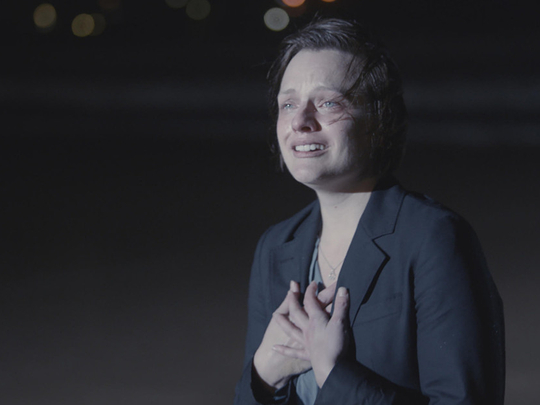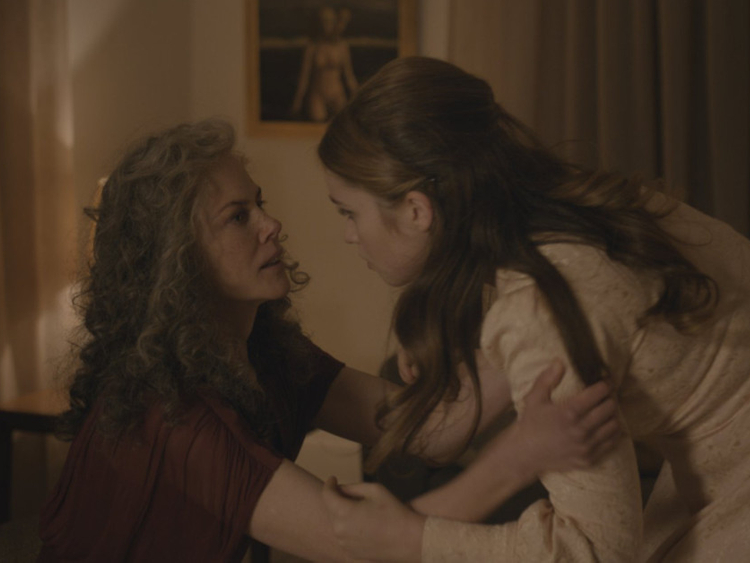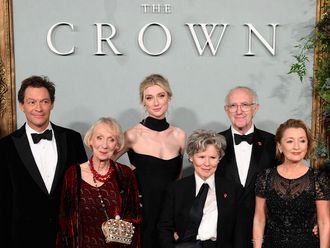
Leaving four years between the end of one season and the beginning of the next might be unheard of on American television. But in England, drastic time jumps are a well-utilised narrative device.
The 2013 crime-drama Top of the Lake, whose follow-up series Top of the Lake: China Girl premieres in the UK this Thursday, and in the UAE next month, uses the passage of nearly half a decade to move its protagonist, Detective Robin Griffin (Elisabeth Moss), into a new phase in her life — one concerned with maternal instincts.
Hakan Kousetta, a producer on the show, told Gulf News tabloid! in February precisely why this works — and why director Jane Campion, who won the Academy Award for Best Original Screenplay in 1993 for The Piano, is the reason behind the show’s continuing triumph.
Where does Top of the Lake: China Girl pick up from?
We’re four years later from the end of the last series. Our main character, Robin, is going back to Sydney. We see is that the real motivation for her going back is not only to leave behind the terrible mess in the first series — and all the psychologically damaging experiences she had — but to reconnect with her family [and] the daughter she had given up for adoption when she was a baby.
What path does the story follow?
The story follows two paths: one, which is her trying to reconnect with her daughter, who is now 18. But also, she’s going back to work after quite a long absence and trying to get herself back together. During the process of investigating a murder case, she discovers that there are interlinks of that case and the life of her daughter, who she’s reconnecting with. The stories intersect, in a very Jane Campion way.
What are the challenges presented by jumping four years into the future?
We’re meeting Elisabeth Moss’s character when she’s a little bit older, when she’s looking for the security of a family. She’s a woman of a mothering age. All of those things are informing this moment in her life. One of the big themes of the story is motherhood, and the complexities of 21st century motherhood, in both the Western and non-Western sense. I describe this as a second miniseries, rather than a second season.
Can Top of the Lake: China Girl stand on its own?
Very little comes back from season one. It’s not a continuation. You can watch season one and go straight into season two and be satisfied. But you can also just watch season two on its own, and you’ll miss a little bit, but not very much.
What made you want to get involved with this project in the first place?
It’s 100 per cent Jane. She said, ‘Look, I’ve got this TV idea,’ and she kind of pulled it out of the bottom drawer, and it was irresistible. It was a little bit ahead of its time. I can’t think of another TV series that was made around that time, or before that time, that was a film director writing and directing something for television — maybe apart from Twin Peaks, which was way ahead of its time.
What are your thoughts on streaming services like Netflix, which have changed the way television is formatted?
It’s a great thing. It’s totally liberating. It’s amazing that we can play around with the form. Certain projects lend themselves to binge-watching, or dipping in and out when you want. It’s a bit like a novel. You can sit there and read it in three days straight, or you can dip into it over a year. You should allow people to enjoy it the way they want. The brilliant thing about this is there’s no ad-breaks, there’s no interruptions. It gives a real interesting opportunity for people to tell stories without any interruptions.














